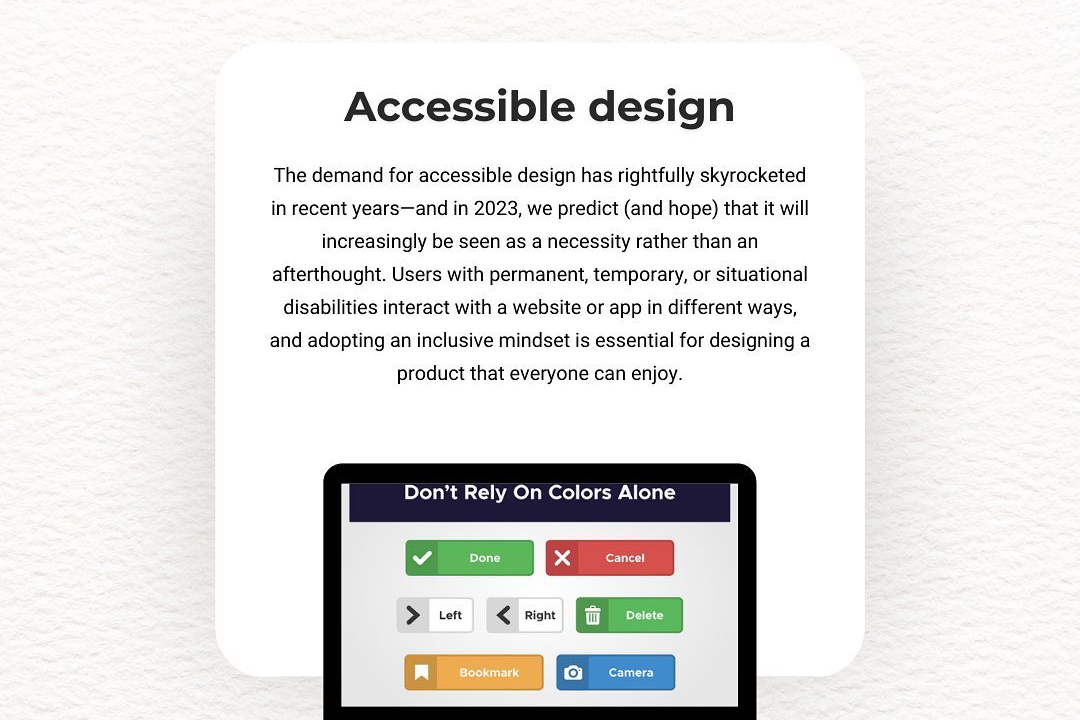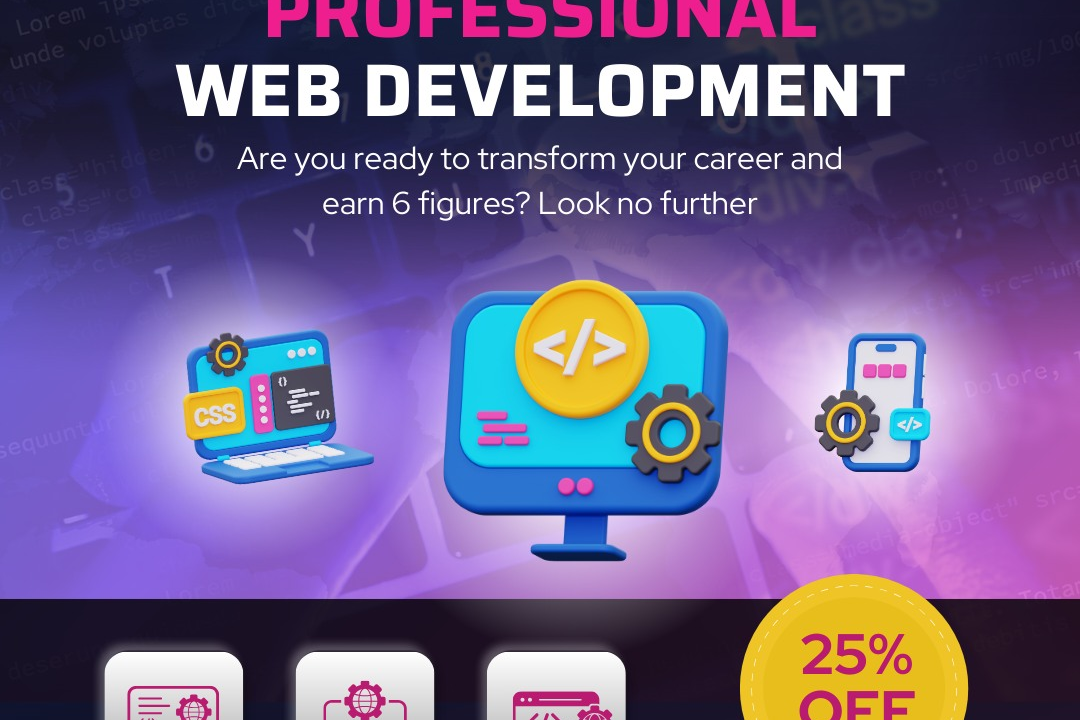Hospital Management Program Installment PHP
The Hospital Management System PHP installation is a comprehensive software solution designed to sim
Hospital Management Program Installment PHP
The Hospital Management System PHP installation is a valuable tool that helps healthcare organizations streamline their administrative and clinical operations through an intuitive, web-based platform. By automating tasks such as patient registration, appointment scheduling, billing, and staff management, it reduces manual work, minimizes errors, and improves efficiency. This system enables healthcare providers to deliver better patient care by ensuring accurate data management and quick access to essential information. Its ease of installation and customization make it a practical solution for hospitals seeking to enhance operational productivity and focus more on patient well-being.
To Download Our Brochure: https://www.justacademy.co/download-brochure-for-free
Message us for more information: +91 9987184296
The Hospital Management System PHP installation is a valuable tool that helps healthcare organizations streamline their administrative and clinical operations through an intuitive, web based platform. By automating tasks such as patient registration, appointment scheduling, billing, and staff management, it reduces manual work, minimizes errors, and improves efficiency. This system enables healthcare providers to deliver better patient care by ensuring accurate data management and quick access to essential information. Its ease of installation and customization make it a practical solution for hospitals seeking to enhance operational productivity and focus more on patient well being.
Course Overview
The Hospital Management Program Installment PHP course provides comprehensive training on developing and deploying a hospital management system using PHP. It covers core concepts, database integration, and features like patient management, appointments, billing, and staff modules, enabling learners to build functional healthcare management applications from scratch.
Course Description
The Hospital Management Program Installment PHP course offers hands-on training in building and deploying a comprehensive hospital management system using PHP, covering patient details, appointments, billing, and staff management for effective healthcare operations.
Key Features
1 - Comprehensive Tool Coverage: Provides hands-on training with a range of industry-standard testing tools, including Selenium, JIRA, LoadRunner, and TestRail.
2) Practical Exercises: Features real-world exercises and case studies to apply tools in various testing scenarios.
3) Interactive Learning: Includes interactive sessions with industry experts for personalized feedback and guidance.
4) Detailed Tutorials: Offers extensive tutorials and documentation on tool functionalities and best practices.
5) Advanced Techniques: Covers both fundamental and advanced techniques for using testing tools effectively.
6) Data Visualization: Integrates tools for visualizing test metrics and results, enhancing data interpretation and decision-making.
7) Tool Integration: Teaches how to integrate testing tools into the software development lifecycle for streamlined workflows.
8) Project-Based Learning: Focuses on project-based learning to build practical skills and create a portfolio of completed tasks.
9) Career Support: Provides resources and support for applying learned skills to real-world job scenarios, including resume building and interview preparation.
10) Up-to-Date Content: Ensures that course materials reflect the latest industry standards and tool updates.
Benefits of taking our course
Functional Tools
1 - PHP (Hypertext Preprocessor) Frameworks: The course extensively covers popular PHP frameworks like Laravel, CodeIgniter, and Symfony. These frameworks streamline the development process by providing pre built modules, libraries, and best practices, enabling students to create scalable and maintainable hospital management systems efficiently. learners gain hands on experience in structuring code, managing database interactions, and implementing security features within these frameworks. Practical exposure to real world projects helps students understand how to develop robust applications that meet healthcare industry standards. Emphasis is laid on writing clean, modular, and reusable code to facilitate future enhancements and integration with other hospital systems. The frameworks’ features like routing, middleware, and ORM (Object Relational Mapping) are thoroughly explained to build a comprehensive understanding of web application development in a healthcare context.
2) PHPMyAdmin and Database Tools: The course introduces students to PHPMyAdmin, a user friendly interface for managing MySQL databases. They learn how to design database schemas, write complex queries, and optimize database performance specifically for hospital management systems. Understanding database security, backup, and recovery procedures is also emphasized to ensure data integrity and compliance with health data regulations. Students practice creating tables for patient records, appointment scheduling, billing, and staff management, learning how to establish relationships and enforce constraints. The focus is on managing large volumes of sensitive healthcare data efficiently while maintaining quick access and data accuracy, essential for hospital operations.
3) MySQL and SQL Querying: Deep dives into MySQL cover creating and managing databases tailored for healthcare facilities. Students learn SQL commands for inserting, updating, deleting, and retrieving records critical to hospital workflows. They explore advanced querying techniques, including joins, subqueries, and stored procedures, to handle complex data retrieval tasks like tracking patient histories or generating reports. The importance of data normalization, indexing, and query optimization are addressed to ensure application speed and reliability. Students also learn how to implement security measures within SQL, such as user authentication and permissions, to protect sensitive health information.
4) Version Control Tools (Git & GitHub): The course emphasizes the importance of version control systems like Git to manage code efficiently during project development. Students learn how to initialize repositories, commit changes, branch out for features or bug fixes, and resolve conflicts collaboratively. Using platforms like GitHub, they gain skills in code review, documentation, and remote collaboration, which are vital in professional hospital management system projects. The focus is on maintaining clean, traceable codebases, enabling teams to work seamlessly regardless of geographical barriers, ensuring smooth project flow, and enhancing software quality.
5) Front end Technologies: Alongside PHP backend development, students are introduced to frontend tools like HTML5, CSS3, and JavaScript. These are essential for creating user interfaces that are intuitive and accessible to hospital staff and patients. The course covers responsive design frameworks like Bootstrap to ensure systems work flawlessly across devices such as desktops, tablets, and smartphones. Interactive elements powered by JavaScript and libraries like jQuery help build dynamic dashboards, appointment scheduling widgets, and patient registration forms, providing a seamless user experience. Incorporating accessibility standards ensures that interfaces are usable by individuals with disabilities, aligning with healthcare inclusivity standards.
6) Web Servers and Deployment Tools: The training includes setting up web servers like Apache or Nginx to host hospital management applications locally and on cloud servers. Students learn how to configure server environments, deploy PHP applications, and troubleshoot common hosting issues. Knowledge of deployment automation tools such as Docker is also imparted to streamline the development to production transition, ensuring consistency across environments. This prepares students to handle real world deployment scenarios, maintaining system stability, security, and uptime for critical healthcare services.
7) Integrated Development Environments (IDEs): The course advocates using advanced IDEs like Visual Studio Code, PHPStorm, or Sublime Text, which offer features like code highlighting, debugging, and version control integration. These tools enhance productivity and make coding more efficient by reducing errors and providing quick access to code snippets, extensions, and plugins suited for PHP development. Training on IDEs helps students adopt professional coding standards, facilitate debugging during hospital system development, and manage complex projects with ease, mimicking industry best practices.
8) API Development and Integration Tools: Students learn to create RESTful APIs using PHP, enabling hospital systems to communicate with external platforms such as insurance portals, lab services, or electronic health records (EHR). The course covers tools like Postman for testing APIs, ensuring secure and reliable data exchange. They understand how to implement authentication tokens, data serialization formats like JSON, and error handling within APIs. This ensures that new modules can be integrated smoothly with existing hospital infrastructure, facilitating interoperability and expanding system functionalities.
9) Security Tools and Protocols: The program highlights the use of SSL/TLS certificates to secure data transmissions and tools like OAuth 2.0 for user authentication. Students explore best practices in encrypting sensitive data, implementing secure login procedures, and preventing common web vulnerabilities such as SQL injection, Cross site Scripting (XSS), and Cross site Request Forgery (CSRF). The course emphasizes building a secure hospital management system that complies with healthcare data privacy laws. Hands on exercises include configuring security headers and performing vulnerability assessments to safeguard patient information.
10) Testing and Debugging Tools: To ensure the reliability of hospital management applications, learners are introduced to testing frameworks such as PHPUnit for unit testing PHP code. They learn debugging techniques using browser developer tools, IDE built in debuggers, and logging utilities to identify and fix issues efficiently. The focus is on developing bug free, stable code that performs consistently under various scenarios, which is critical given the high stakes environment of healthcare data management. Regular testing and debugging practices prepare students to deliver professional grade software solutions ready for deployment in sensitive hospital settings.
11 - Continuous Integration and Deployment (CI/CD) Tools: The course covers the integration of CI/CD pipelines using platforms like Jenkins, GitHub Actions, or GitLab CI. Students learn how to automate testing, building, and deploying hospital management systems, ensuring rapid delivery of updates with minimal manual intervention. This practice enhances software reliability, reduces deployment errors, and accelerates feature rollouts, critical for maintaining seamless hospital operations.
12) Cloud Hosting and Storage Solutions: Students explore options for hosting hospital management applications on cloud platforms such as AWS, Azure, or Google Cloud. They learn about configuring Virtual Private Servers, setting up scalable storage solutions, and managing cloud security. Understanding cloud infrastructure helps in deploying highly available, resilient systems capable of handling large patient data volumes with flexibility and cost efficiency.
13) Data Backup and Disaster Recovery Planning: The curriculum emphasizes strategies for regular data backups using automated tools and establishing disaster recovery plans to minimize data loss during unforeseen events. Students learn to implement backup schedules, utilize cloud backup services, and test recovery procedures, ensuring hospital data remains protected, compliant, and available during crises.
14) XML/JSON Data Formats and Parsing: The course details how to handle data exchange formats like XML and JSON, which are commonly used in integrations with third party healthcare services. Students gain skills in parsing, validating, and transforming data to ensure smooth interoperability between hospital systems and external APIs or legacy applications.
15) Mobile Application Basics and Integration: The course introduces the fundamentals of mobile app development and how hospital management systems can be accessed via mobile devices. Students learn to create responsive web interfaces optimized for mobile, and explore integration with native apps to provide on the go access for healthcare providers and patients, enhancing service delivery.
16) Compliance and Regulatory Best Practices: Emphasis is placed on understanding healthcare specific regulations such as HIPAA in the US, GDPR in Europe, or local data protection laws. Students learn how to design hospital systems that adhere to these regulations, including data encryption, access controls, audit trails, and user consent management, ensuring legal compliance and patient privacy.
17) User Experience (UX) and Accessibility Design: The curriculum covers principles of designing intuitive and user friendly hospital management interfaces. Students learn about usability testing, accessibility standards like WCAG, and best practices for reducing user errors, making hospital systems more effective and inclusive for all users, including doctors, nurses, administrative staff, and patients.
18) EHR/EMR System Integration: The course explores how to integrate Electronic Health Record (EHR) and Electronic Medical Record (EMR) systems into hospital management solutions. Students understand data standards such as HL7 and FHIR, enabling smooth data sharing and synchronization with external healthcare providers and diagnostic labs, improving patient care continuity.
19) Multi language and Localization Support: Students learn strategies for developing hospital systems that support multiple languages and regional formats. This ensures that hospital staff and patients from diverse backgrounds can use the system comfortably, promoting inclusivity and accessibility in increasingly globalized healthcare environments.
20) Alert and Notification System Development: The course covers creating real time alerting mechanisms within hospital management systems, such as SMS, email, or in app notifications. These are vital for urgent patient updates, appointment reminders, or system alerts, ensuring timely actions and efficient healthcare delivery.
21 - Load Testing and Performance Optimization: Trainings include tools like Apache JMeter to simulate heavy user loads and test system performance. Students learn how to identify bottlenecks, optimize database queries, and enhance server response times, ensuring the hospital system remains fast and reliable under high demand.
22) Analytics and Reporting Modules: The curriculum teaches how to develop dashboards and reports that provide actionable insights into hospital operations, patient demographics, and resource utilization. Students learn to generate custom reports and integrate data visualization tools, aiding management in informed decision making.
23) Custom Module Development: Beyond standard features, students gain skills to develop custom modules tailored to specific hospital needs, such as pharmacy management, laboratory tracking, or staff scheduling. This customization capacity ensures the hospital management system remains flexible and adaptable.
24) Ethical Coding and Data Privacy Principles: The course emphasizes responsible programming practices, such as ensuring data privacy, fostering transparency with data handling, and maintaining ethical standards, which are especially paramount in healthcare scenarios involving sensitive patient information.
25) Community and Support Forums: The program encourages active participation in developer communities and support forums, fostering continuous learning, troubleshooting, and sharing of best practices. This collaborative learning environment prepares students for ongoing professional development and problem solving in real world hospital system projects.
26) Capstone Projects and Industry Collaboration: The training concludes with comprehensive capstone projects that replicate real hospital management challenges. Collaborations with healthcare institutions provide practical insights and feedback, bridging the gap between learning and industry requirements.
27) Certification and Portfolio Development: Upon course completion, students receive industry recognized certifications and guidance on building professional portfolios, showcasing their hospital management system projects to potential employers or clients.
28) Ongoing Support and Updates: JustAcademy offers continuous support, updates on emerging healthcare tech trends, and refresher modules, ensuring learners stay current with evolving technologies and industry standards.
Browse our course links : https://www.justacademy.co/all-courses
To Join our FREE DEMO Session:
This information is sourced from JustAcademy
Contact Info:
Roshan Chaturvedi
Message us on Whatsapp: +91 9987184296
Email id: info@justacademy.co
No.1 Institute For Angular Training With Certification In Shirdi












